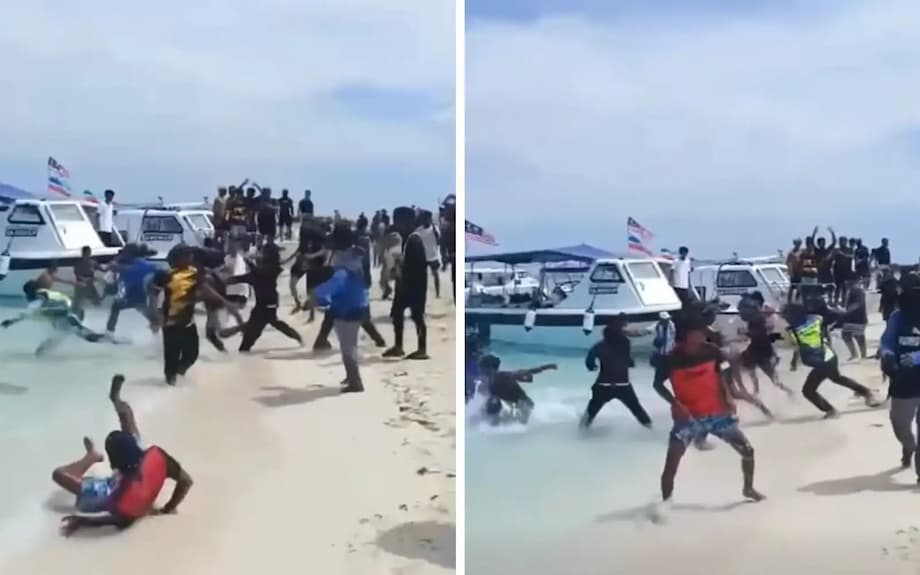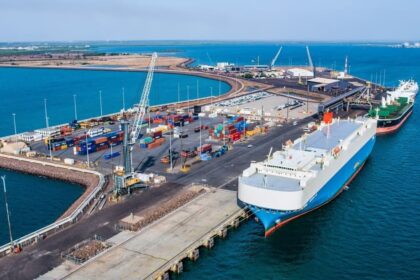Why a viral island brawl matters for Sabah tourism
A short video of a fight on Timba Timba island near Semporna has ignited a debate about visitor safety, illegal charges and the credibility of island tourism in Sabah. Police say the clash involved groups demanding unapproved landing fees from tour operators and their guests. Three men were detained to assist the investigation after the clip spread widely on social media and triggered a wave of public anger.
- Why a viral island brawl matters for Sabah tourism
- What happened on Timba Timba
- Who has the right to charge fees, and what the law says
- Semporna’s islands draw global attention
- Risks for visitors and operators
- What authorities are doing now
- How to stop illegal fees from taking root
- Tips for tourists and tour companies
- Tourism, conservation and livelihoods are linked
- What to Know
The national tourism minister, Tiong King Sing, issued a blunt warning. He said Sabah’s international appeal could suffer if unlicensed fee collectors are not stopped quickly. His concern is rooted in how destinations build trust. Visitors share experiences with friends, post videos and leave reviews. Stories about intimidation on beaches or jetties can scare off potential travelers faster than any glossy campaign can bring them back. Those who plan trips to Semporna, a gateway to famed dive sites and sand cays, expect scenic boat rides and relaxed stops on clear water, not arguments over cash at the waterline.
The term landing fee sounds routine and sometimes it is. Many coastal destinations charge a small conservation or jetty fee to help with maintenance and environmental management. These levies are usually posted clearly, collected by designated officers and receipted. In the Timba Timba case, the minister says the island is state owned and that no charge has been approved. That means anyone demanding payment is acting outside the law. The confusion, and the confrontation that followed, show how quickly unclear rules can turn a day trip into a safety scare.
What happened on Timba Timba
Acting Semporna police chief Jaafar Hakim said a tour company manager reported being attacked while escorting a group of tourists to Timba Timba. The company had already paid what it believed was a landing fee to one outfit. When the boat arrived, another group demanded a second payment. An argument escalated into a fight, which bystanders recorded and shared online. Police opened an investigation for rioting under Section 147 of the Penal Code. That section covers situations where members of an unlawful assembly use force or violence. It can carry a sentence of up to two years in prison, a fine, or both.
Minister Tiong, who has repeatedly pressed for tighter enforcement at tourism hot spots, said illegal fee collectors undermine confidence and tarnish Sabah’s brand. In a Facebook post, he framed the issue as both a safety risk and a reputational threat to Malaysia’s tourism sector.
Tiong King Sing, Malaysia’s tourism, arts and culture minister, said: “Tourists come to Sabah to enjoy the beauty of its islands and seas, not to face threats and intimidation. Weak enforcement has emboldened irresponsible parties to act without fear, as though no punishment awaits them. This ultimately undermines tourist confidence. Failure to resolve this issue will not only damage Sabah’s reputation but also harm Malaysia’s international standing.”
He also questioned whether any group might be protecting the collectors, noting that similar incidents have occurred before. The remark signals frustration with recurring disputes that flare up, fade, and then return, all while the destination tries to compete for higher value visitors.
Who has the right to charge fees, and what the law says
The minister’s statement that Timba Timba is state owned is not just a detail. It goes to the core question of authority. In Sabah, only the state or authorized entities can levy charges for entry, landings, or conservation on public land or protected waters. When an island falls under a marine park, for example, the park authority may set a posted fee structure and issue official receipts. District councils and land offices can also approve certain charges for facilities they manage, such as jetties or waste services. If none of these approvals exist, any demand for payment is illegal.
Legitimate fees are usually gazetted or published, and they are collected by staff in uniform or by licensed agents. Receipts name the issuing agency and the fee type. Tour operators rely on this clarity to price their packages and to keep guests safe. Without clear legal authority and clear public notices, tourists face mixed messages on beaches and sandbars, which can create pressure points where confrontations start.
Malaysia also regulates many players in the travel chain. Tour guides and travel companies must be licensed under the Tourism Industry Act 1992, a framework designed to raise standards and protect visitors. That system does not permit ad hoc charges at public sites by private groups. The rule of law, backed by visible enforcement, is the only way to prevent fee disputes from spilling into conflict.
Semporna’s islands draw global attention
Semporna is the jumping off point to some of Southeast Asia’s most celebrated island waters. Travelers come for macro diving, rare corals, sea turtles and long beaches that appear and vanish with the tides. Popular spots include Mabul, Kapalai, Mataking, Pom Pom and a string of small cays where day trippers land for snorkeling and picnics. Sipadan, which requires permits managed by Sabah Parks, sits farther offshore and remains a bucket list site for experienced divers. The area’s appeal rests on a mix of marine life, village culture and dramatic seascapes.
That success creates pressure. Tour boats converge on small landing areas. Local livelihoods depend on a steady flow of guests who buy trips, hire guides and eat in town. In this setting, any gray area about who can collect fees becomes a flashpoint. Operators want predictability. Visitors want to know the costs upfront. If a captain pays one collector at the jetty, then meets a second group at the beach, the dispute is almost baked in.
Semporna has worked to improve safety with maritime patrols and closer checks on operators. Tourists today are also more alert. They read reviews, ask for receipts, and look for clear signage. When those signs are missing, the confusion can be exploited. The viral video from Timba Timba shows how suddenly a breakdown in clarity can become a public spectacle shared far beyond Sabah’s shores.
Risks for visitors and operators
For travelers, intimidation over fees is more than a minor annoyance. It raises concerns about personal safety, the security of belongings left on boats and the quality of the rest of the day’s activities. Families with children will avoid beaches that feel tense. Divers may cancel excursions if they sense trouble at the landing. News of confrontations travels quickly across social platforms and can influence decisions by tour groups and cruise planners.
Local operators face a different cost. They can lose income when guests cut short a trip or when a day is spent dealing with disputes rather than guiding. Insurance issues can surface if clients are injured in scuffles. Smaller firms can be squeezed by demands for duplicate payments that are neither official nor receipted. Reputational damage does not fall on unlicensed collectors alone, it falls on the destination brand and on legitimate companies that work hard to keep standards high.
What authorities are doing now
Police in Semporna have detained three men to assist the investigation and are probing the case under Section 147 of the Penal Code. Officers also emphasized how the viral clip hurt the image of a district that depends heavily on visitors and sea based activities. The force indicated that strong action would follow to protect public safety and order. That message is meant to reassure both residents and incoming travelers as the case moves forward.
The next steps usually include clearer public notices, spot checks on beaches and jetties, and coordination among district authorities, maritime agencies and tourism officials. Visible presence often deters confrontations. Clear rules, posted in multiple languages and backed by a hotline for complaints, help visitors and operators defuse a dispute before it turns physical.
How to stop illegal fees from taking root
Enforcement alone rarely fixes a recurring problem. Clarity and convenience matter too. The state can publish a single list of official charges for islands, jetties and parks in the Semporna area, with a date stamp and logos of the agencies involved. That list can be displayed at departure points, ticket counters and key landings. If there is no fee at a site, the sign should say so in plain language. Tour companies can include the same schedule in booking confirmations so guests know what they have already paid.
Payment systems help. Centralized collection at the jetty or on licensed boats, with digital receipts, removes the need to carry cash onto remote beaches. A short code SMS or QR verification tool that confirms an official payment can end arguments on the spot. Enforcement teams can carry the same verification tool to check operators quickly and fairly. Community engagement is also part of the fix. Local leaders can help identify the groups behind unauthorized collections and bring them into formal work, whether as beach stewards, waste crews or licensed guides, so that livelihoods are protected within the law.
Tips for tourists and tour companies
Clear choices reduce risk. Visitors and operators can take a few practical steps that make disputes less likely and help authorities act when problems arise.
- Check in advance which fees apply to your itinerary and pay through your licensed operator where possible.
- Ask for official receipts that show the agency name, date and amount.
- Keep a digital copy of permits and receipts on your phone for quick reference at landings.
- Use licensed guides and operators. Look for company names on boats and life vests and verify credentials.
- If confronted by anyone asking for cash outside posted procedures, stay calm, decline politely and contact your operator or the nearest uniformed officer.
- Report incidents with photos or video to the police and tourism authorities, including time, location and descriptions of those involved.
- Operators should brief guests before departure on expected fees and on how to handle any unsolicited demands.
Tourism, conservation and livelihoods are linked
Sabah’s coast supports both tourism and fisheries. Research on the state’s marine sector has documented pressures that arise when rules are weak and enforcement is sporadic. Studies highlight how illegal activity and conflicts in coastal zones harm resources and strain relations among users. Healthy reefs and clear water are the foundation of island tours, snorkeling days and dive trips. When governance is unclear, short term gains from unauthorized fees can undercut the shared interest in sustainable use and visitor loyalty.
Experts who study Sabah’s marine systems point to practical steps that match the measures discussed for tourism, including consistent enforcement, clear regulations and collaboration with local communities. The same approach that protects fish stocks also protects the visitor experience. That alignment helps residents who depend on the sea for income and helps travelers who come for a safe and memorable day on the water.
What to Know
- Police are investigating a fight on Timba Timba island that started over illegal landing fees, with three men detained to assist.
- Minister Tiong King Sing warned that unlicensed fee collectors threaten Sabah’s reputation and tourism revenue.
- The minister says Timba Timba is state owned and that no approved landing charge exists for the site.
- Only the state and authorized agencies can levy fees on public land or protected waters, and official charges are usually posted and receipted.
- The case is probed under Section 147 of the Penal Code on rioting, which can carry jail time or fines.
- Clear signage, centralized payments with digital receipts and joint enforcement can prevent disputes at island landings.
- Tourists and operators can reduce risk by verifying official fees in advance and reporting any unauthorized demands.












